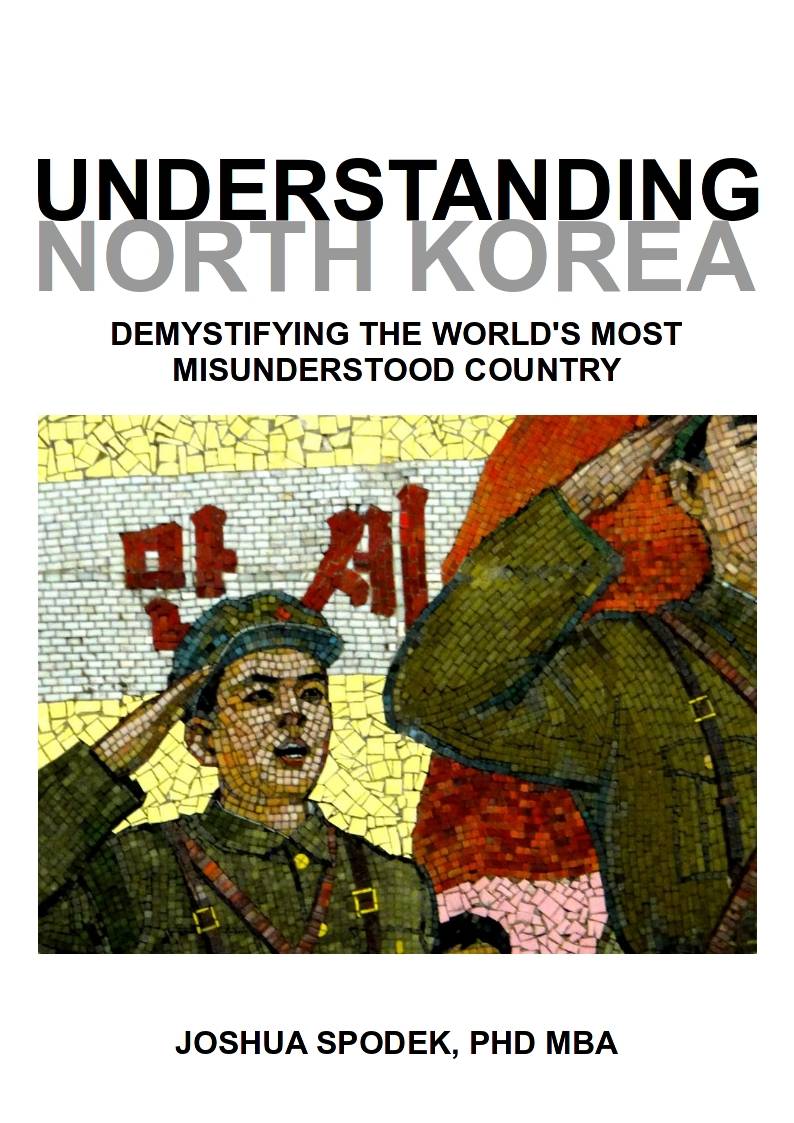North Korean strategy: how does the world look to North Korean leaders?
I have found people outside North Korea quick to express feelings of moral outrage, indignation, and injustice by judging North Korean leaders. They call them monsters, bad, evil, and so on.
I have found such judgment counterproductive to influencing others (as well as my own well-being). If you don’t like what’s happening there and want to change it, expressing judgment may make you feel better, but you sacrifice ability to change things. I guarantee decision-makers there don’t consider themselves monsters, bad, or evil. If you say they are, you polarize the situation, contribute to them digging in their heels, and stabilizing the situation you wanted to change.
You may be right.They may be monsters, bad, evil, or worse. My goal isn’t to label or categorize. My goal is to create understanding, communication, and allow people to live the lives they want minimizing hurting others.
Creating understanding leads to my exercise in increasing empathy and the thoughts it led to. If you don’t understand someone else’s perspective, you will have a hard time influencing them. If you do understand them and their motivation — that is, if you empathize with them — you at least have a chance at influencing them.
Whether you consider them right, wrong, good, bad, evil, all or none of the above, or whatever, you benefit yourself and improve your chances of success by trying to empathize with them. Trying to experience the feelings and motivations of someone you feel is evil, bad, or monstrous can be uncomfortable, but experiencing feelings is not the same as being someone or doing something you dislike. It’s just an exercise. You won’t hurt yourself or anyone else.
The North Korean perspective
Imagine yourself a North Korean decision-maker. You grew up in a system you have no responsibility for creating, but it works. Likely that system blinds you from seeing any problems with it. Stability seems a noble goal. Who doesn’t like stability? Same with loyalty.
Meanwhile you’ve been told some mix of verifiable history and rumor that other countries threaten you — in fact, the only countries that ever bother you have always bothered you: the United States, South Korea, and Japan. Nobody else bothers you or your country.
And those countries that threaten you all once invaded, oppressed, and killed people, parents and other ancestors of people you know.
All you want is for things to stay as they are (stability). The system may have its problems, but as far as you can tell it generally works and you want it to stay that way (loyalty).
Moreover, from your perspective those countries are horribly unstable and their people show no loyalty. Your country has had two leaders over decades, showing stability, one of your greatest values. Their governments change all the time, showing instability, one of your worst problems. They have internal rebellions showing no loyalty. Your greatest values mean nothing to them. What disasters their countries are! What hypocrites to suggest they could help you! They appear to want to hurt you, wipe away what you value, and replace it with their worst problems. What idiots and fools.
All those foreigners look like outside agitators. Why would they care about you and your independent country except if they wanted to change things. If things work now and they want to change things, they probably will mess things up. You and your fellow citizens would of course resist that — anyone in any country would resist outside influence. If they think they can succeed they must expect to take us over, making them imperialist. We aren’t starting them invading us, so they must be aggressive.
Whether you agree with it or not, this perspective seems to make sense for someone there. They don’t know what you do.
From their perspective, you look like an imperialist aggressor or an idiot or fool. They feel just as justified judging you from their perspective as you do judging them from yours. Again, I’m not saying they or you are right, wrong, good, bad, or evil, only that I expect they would feel justified. Just like you feel justified.
Repeating what I said above, I expect any communication, particularly from the United States, South Korea, or Japan, that didn’t acknowledge their perspective of us, would contribute to polarizing the situation and reduce anyone’s ability to understand or influence anyone else. Keep in mind, they probably feel similarly about you. Does their calling you an imperialist aggressor make them more or less credible to you? Does it make you feel more or less like you understand the situation and they don’t?
Understanding their perspective without expressing judgment gives you a chance.
Next: What won’t work (in preparation for what will)
—
EDIT: I included much of this post and this series on strategy (edited and polished) in my ebook, Understanding North Korea: Demystifying the World’s Most Misunderstood Country. I wrote the book to help increase understanding, communication, and freedom.
Read my weekly newsletter

On initiative, leadership, the environment, and burpees

Pingback: North Korea strategy: preview | Joshua Spodek
Pingback: North Korean strategy: what do North Korean leaders want? | Joshua Spodek